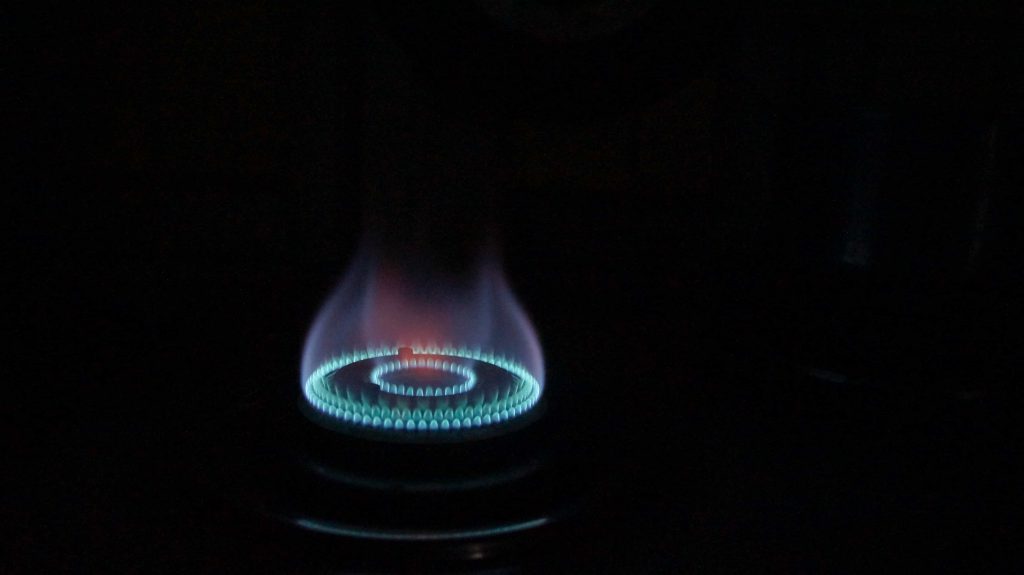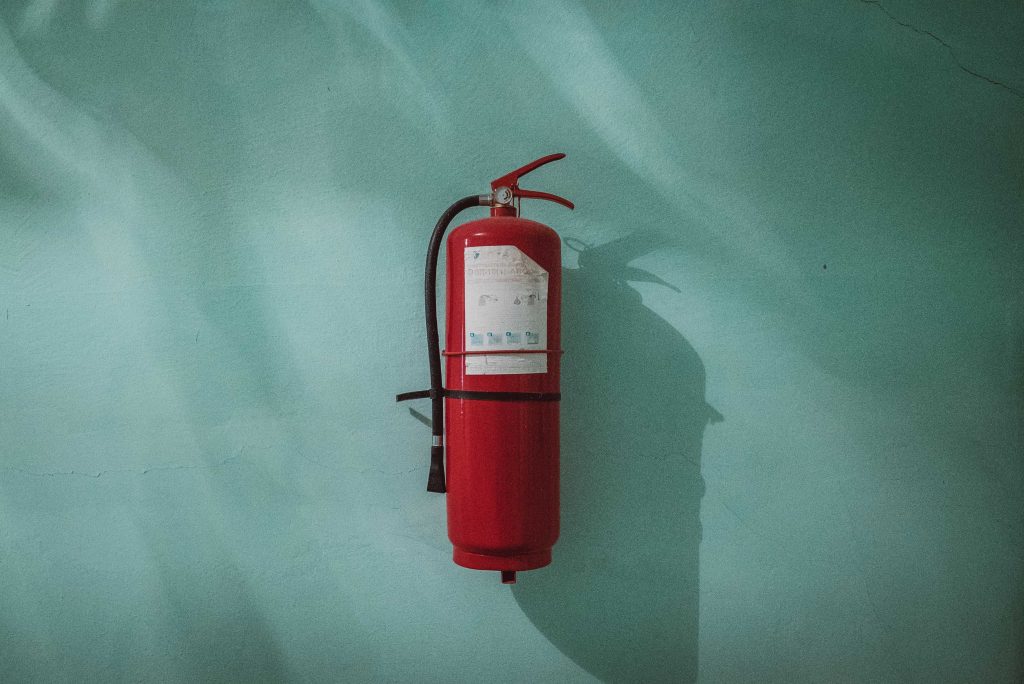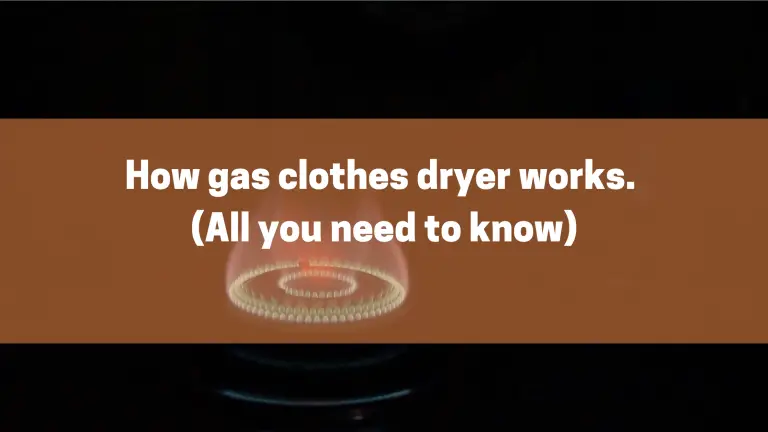There are some things you should know about how a gas clothes dryer works before you buy one, though.
At least it helps to have a good understanding of how your clothes dryer works.
So how does a gas dryer work?
Gas clothes dryers work by using a heating element to produce heat. The heat is then used to dry the clothes. Clothes are placed in the dryer, and the element heats up. The heat is then distributed to the clothes, and they are dried.
Here is how a gas dryer works:
Gas clothes dryers use either natural gas or propane to produce heat. The gas is burned in order to create heat, which is then used to dry the clothes. This process is much faster than using an electric model.
And best of all, there are no worries about how long your clothes will take to dry – with a gas dryer, they’ll be done in no time! It also produces less heat, making it a more energy-efficient option.
In this blog post, I will take a deep dive with you into learning how gas clothes dryers work, and some of their pros and cons.
Table of Contents

What is a gas clothes dryer?
There are many different types of dryers, but how does a gas clothes dryer work? The answer is that it’s pretty simple.
A gas clothes dryer has the same basic parts as an electric clothes dryer and works on a rather similar principle. There are three main components:
1) Heat source-usually natural gas or propane,
2) Ventilation system
3) Tumbler.
A gas clothes dryer works by using a heat source powered by natural gas such as propane to warm the air inside the dryer. The air is then circulated through the clothing in the tumbler, which helps to remove moisture from the clothing. The ventilation system then removes the moist air from the dryer and exhausts it outside.
The most obvious difference is that a gas clothes dryer uses gas as its heat source, while an electric clothes dryer uses electricity.
How a gas clothes dryer works
A gas clothes dryer requires a steady stream of hot air to operate.
When you turn on your gas clothes dryer, the igniter will first heat up. Once it gets hot enough, it will create a spark that ignites the gas in the burner. The burner then begins to heat up the air that circulates through the drum.
The burner is located on the bottom of the dryer. The heat from the burner passes through the ducts and into the drum, where it dries the clothes.
The exhaust from the dryer goes out through a pipe that vents to the outside of the home. It is crucial that the dryer must be vented to the outside in order to work properly.
If the dryer is not vented, the air will not be able to circulate and the clothes will not dry.
There are two types of gas clothes dryers: natural gas and propane.
Natural gas dryers are connected to a gas line that supplies the gas to the dryer.
Propane dryers have a propane tank that must be refilled when it runs out of gas.
Gas clothes dryers are more expensive to operate than electric clothes dryers of a similar kind. However, they are much faster and more efficient.
What fuels a gas clothes dryer?
A gas clothes dryer is fueled by natural gas, which is a combustible mixture of hydrocarbons.
The natural gas enters the dryer through a small opening at the bottom called the inlet. The inlet is connected to a pipe that runs from your home’s main supply line.
The burner is located below the drum and it heats the air that circulates through the drum.
If you have a gas clothes dryer, you’ll need to have a natural gas line installed in your home in order to fuel it.
The main parts of a gas dryer
As an owner or potential owner of a clothes dryer, you may want to know the main parts of your dryer that keeps it running.
The main parts of a gas dryer are the lint filter, heating element, blower fan, and drum.
Each part plays an important role in how the dryer works.
The lint filter catches any lint or small pieces of fabric that come off the clothing as it is being dried.
The heating element heats the air that is circulated by the blower fan whiles the drum rotates the clothing so that it is evenly exposed to the hot air.
How much electricity does a gas dryer use?
A gas clothes dryer uses a standard 110/115-volt outlet to power the drum, fan, lights, and controls.
The dryer uses natural gas or propane to generate heat, making it more energy-efficient compared to electric clothes dryers.
This makes the total operating costs of a gas clothes dryer lower than an electric clothes dryer due to less electricity consumption and generally lower costs for natural gas compared to electricity.
Read also: Is a tumble dryer energy efficient?
Do gas dryers get plugged in?
As the name suggests, a gas dryer uses gas in its operation. But does that mean you are going to say bye-bye to electricity consumption from your dryer? Well sorry.
Many new buyers of clothes dryers tend to ask this question.
So, do gas dryers need to be plugged in?
Yes, gas dryers need to be connected to an electric switch in order to function properly. The switch provides power to the dryer’s drum and other parts.
Some gas dryers may even have an electric ignition, which will require a power source.
Additionally, some models may come with an auxiliary power cord that can be used for drying larger loads or for running the dryer in case of a power outage.
Can I install a gas dryer myself?
If you’re considering a gas clothes dryer, be sure to check with your local utility company to see if natural gas or propane is available in your area.
You’ll also need to have a licensed professional install a gas line to your home if you don’t already have one.
Once you’ve taken these steps, you can follow the instructions that come with your gas dryer to complete the installation process.
If you’re not comfortable working with gas lines, it’s best to leave the installation to a professional.
Gas dryers must be properly vented to work safely and efficiently, so be sure to follow all manufacturer instructions carefully. improper installation can lead to fire or carbon monoxide poisoning.
With proper care and maintenance, your gas dryer should provide years of trouble-free operation. Be sure to have it serviced by a licensed professional every few years to keep it running safely and efficiently.
Are gas dryers safe?

Gas dryers offer many advantages over their electric counterparts. Gas clothes dryers are significantly cheaper to run and less expensive to buy, they take up less space in your home and require no electrical wiring for installation, and gas is a cleaner fuel than electricity.
However, there are some disadvantages as well. One of the most obvious is that if there is a gas leak, it can be extremely dangerous.
Another potential issue is that lint can build up in the gas line, which can cause a fire. It’s important to have your gas dryer regularly serviced and to clean the lint trap after each use.
Overall, gas dryers are a safe and efficient option for drying your clothes. With proper maintenance and care, they will last for many years.
Read also: Why does a tumble dryer plug get very hot?
What are the benefits of using a gas clothes dryer?
A gas clothes dryer has many advantages over an electric clothes dryer.
Some of these advantages are:
1. They are more efficient than electric clothes dryers because they use less energy to heat up and dry the clothes.
2. Gas clothes dryers can be cheaper to operate than electric clothes dryers since natural gas is usually cheaper than electricity.
3. For similar types, gas clothes dryers tend to be faster than electric clothes dryers, so you can save time when you’re doing your laundry.
4. Gas clothes dryers vent the heat and moisture outside, so they don’t add to the humidity in your home like electric clothes dryers can.
5. Gas clothes dryers are less likely to cause static electricity, so your clothes will stay charged and you’ll be less likely to shock yourself when you touch them.
6. Gas clothes dryers have a moisture sensor that can shut off the gas if the clothes are getting too dry, so they’re safer to use than electric clothes dryers.
7. Gas clothes dryers have a lint trap that catches lint and dust, so they’re less likely to blow these things around your home.
Now that we’ve covered the disadvantages of using a gas clothes dryer, let’s take a look at the advantages.
What are the disadvantages of using a gas clothes dryer?
It will be a gross exaggeration to say that gas clothes dryers have no disadvantages. In fact, they do have their fair share. Let’s explore some of the disadvantages of a gas clothes dryer.
First, the most obvious one is that you need to have access to a natural gas line in order to use this type of appliance. If you don’t have a gas line running to your home, then you’ll be out of luck.
Another disadvantage of gas clothes dryers is that they tend to be more expensive than their electric counterparts. This is due to the fact that gas dryers require more expensive parts and labor to construct.
Additionally, gas clothes dryers produce more heat than electric models. This can be a problem in homes that are already on the warm side or have poor ventilation. The extra heat produced by a gas dryer can also shorten the lifespan of your clothing.
Finally, gas clothes dryers require more maintenance than electric models. This is because the gas line and connections need to be checked regularly for leaks.
Final words
A gas clothes dryer is a great option if you want to save on energy costs and get your clothes dried quickly.
The benefits of using a gas clothes dryer include that they are more energy-efficient and will dry your clothes faster.
However, there are some disadvantages to using a gas clothes dryer as well. These include the fact that they can be more expensive to purchase and install, and they require proper ventilation in order to work safely.
If you are considering purchasing a gas clothes dryer, it is important to do your research to decide if this is the right option for you.
Consider the pros and cons of using a gas clothes dryer, as well as how much electricity they use and whether or not you need to ventilate them properly.
With this information, you can make an informed decision about whether a gas clothes dryer is the right choice for your laundry needs.
Sources:

